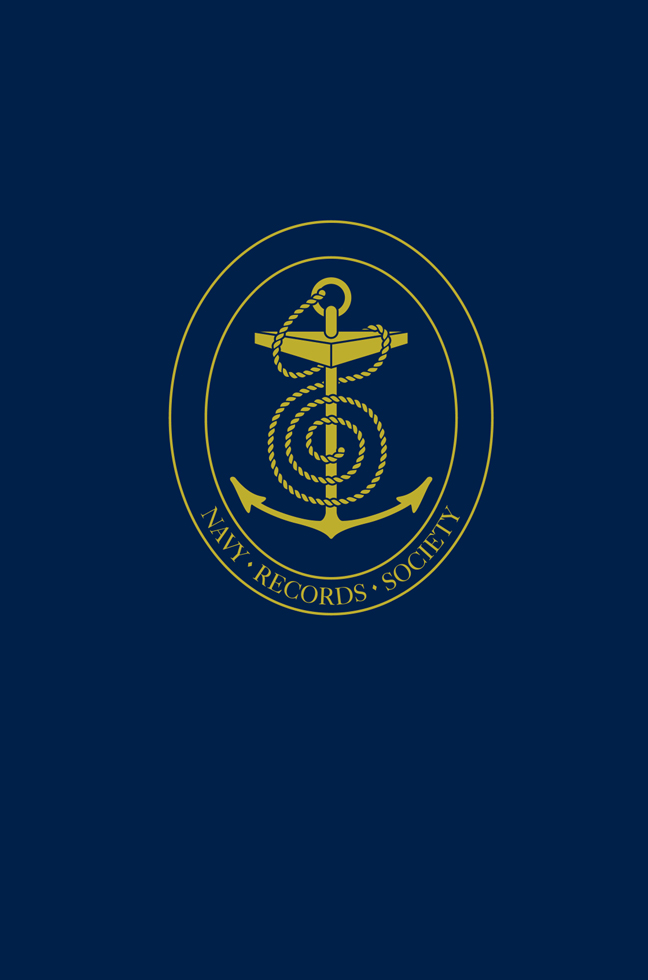Book contents
- Frontmatter
- Dedication
- Contents
- List of Plates
- Preface
- List of Abbreviations
- I The Provision of Ships for Edward I's Campaigns in Scotland, 1300–1306: Barges and Merchantmen
- II Lord Admiral Lisle and the Invasion of Scotland, 1544
- III The Journal of the Voyage of the Marigold to Iceland, 1654
- IV Neutrality, Sovereignty and Jurisdiction: Two Cases in the Admiralty Court, 1798–1805
- V The Supply of Timber for the Royal Navy, c.1803–c.1830
- VI The Journal of Lieutenant George Bedford, 1835–36: Surveying on the West Coast of Africa
- VII The Journal of Lieutenant Charles Knowles in the River Niger, 1864
- VIII The Diary of Signal Bosun Henry Eason: The Naval Brigade in the Zulu War, 1879
- IX The Autobiography of Chief Gunner Alexander Grant: HMS Lion at the Battle of Jutland, 1916
- X Australian Naval Defence: Selections from the Papers and Correspondence of Captain W. H. C. S. Thring, 1913–34
- XI The Relief of Admiral North from Gibraltar in 1940
- XII The Development of an Independent Navy for Australia: Correspondence between the First Naval Member and the First Sea Lord, 1947–59
- Contents of Previous Naval Miscellany Volumes
- Index
- Miscellaneous Endmatter
VII - The Journal of Lieutenant Charles Knowles in the River Niger, 1864
Published online by Cambridge University Press: 05 March 2024
- Frontmatter
- Dedication
- Contents
- List of Plates
- Preface
- List of Abbreviations
- I The Provision of Ships for Edward I's Campaigns in Scotland, 1300–1306: Barges and Merchantmen
- II Lord Admiral Lisle and the Invasion of Scotland, 1544
- III The Journal of the Voyage of the Marigold to Iceland, 1654
- IV Neutrality, Sovereignty and Jurisdiction: Two Cases in the Admiralty Court, 1798–1805
- V The Supply of Timber for the Royal Navy, c.1803–c.1830
- VI The Journal of Lieutenant George Bedford, 1835–36: Surveying on the West Coast of Africa
- VII The Journal of Lieutenant Charles Knowles in the River Niger, 1864
- VIII The Diary of Signal Bosun Henry Eason: The Naval Brigade in the Zulu War, 1879
- IX The Autobiography of Chief Gunner Alexander Grant: HMS Lion at the Battle of Jutland, 1916
- X Australian Naval Defence: Selections from the Papers and Correspondence of Captain W. H. C. S. Thring, 1913–34
- XI The Relief of Admiral North from Gibraltar in 1940
- XII The Development of an Independent Navy for Australia: Correspondence between the First Naval Member and the First Sea Lord, 1947–59
- Contents of Previous Naval Miscellany Volumes
- Index
- Miscellaneous Endmatter
Summary
Command of a ‘gunboat’ in the nineteenth century provided valuable experience for the Royal Navy's junior officers. On the West Africa station the duties carried out by such vessels included intercepting slave runners at sea, close blockade of slave ports, exploration, trade security and the furtherance of British foreign policy in the region. One of these vessels, HMS Investigator, was built for, and spent its entire short career on the West Africa station. Amongst its many tasks was an annual ascent of the Niger River in support of the Niger Expedition primarily under Dr Baikie based at Lokoja, the settlement at the confluence of the Niger and Benue Rivers.
The Niger Expeditions of 1854 and 1857 were reviewed in a Foreign Office note which summarised the purposes of the expeditions as being:
first organised with a view to ascertain if it would be profitable to navigate the river and if so how far, whether it would be practicable to develop a legitimate trade and by doing so to strike at the root of the foreign slave trade and generally to prepare the minds of the native chiefs for entering commercial relations with European traders.
By 1864 the Foreign Office considered that the work of Dr Baikie, who had been resident at Lokoja since 1857, had largely achieved the purposes and expectations outlined above, and it was time for him to be relieved. In consequence, Investigator, under the command of Lieutenant Charles George Frederick Knowles, was ordered to take Lieutenant Henry S. Bourchier, Royal Marine Light Infantry to Lokoja to take command there in Baikie's stead. In addition to Bourchier, Investigator carried other passengers, the most important being Bishop Samuel Crowther, the first consecrated African bishop, who was being taken to his diocese on the Niger. The site of Crowther's first church is today marked by a white cross on the banks of the Niger opposite modern Lokoja.
Throughout Investigator's ascent of the Niger in 1864, Knowles kept a detailed journal containing a narrative of the voyage and a comprehensive study of the people met and places visited. A résumé of the ascent was published in the Royal Geographical Society journal in January 1865. The original of Knowles's journal is held in the United Kingdom Hydrographic Office, and it is this that is reproduced in part here.
Exploration of the Niger River
The Niger River's history is well documented.
- Type
- Chapter
- Information
- The Naval Miscellany , pp. 273 - 326Publisher: Boydell & BrewerFirst published in: 2024



